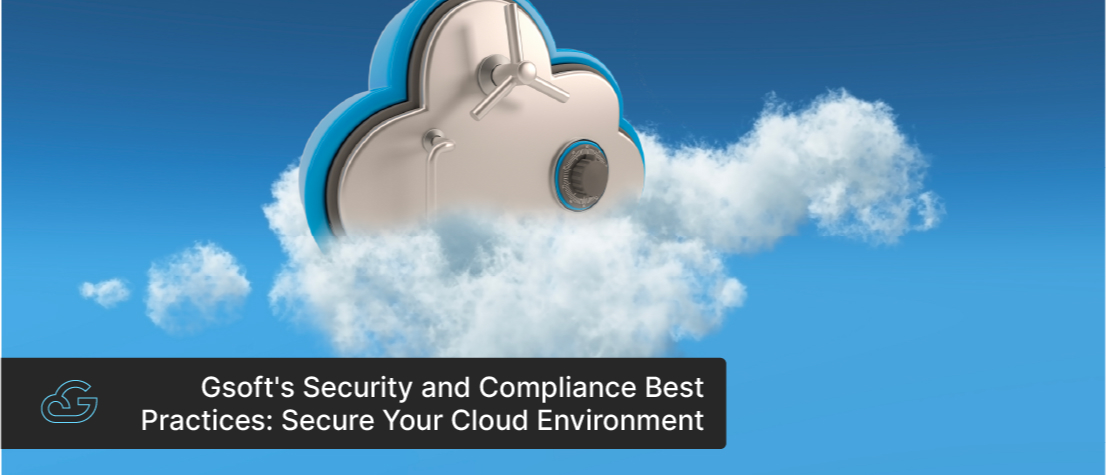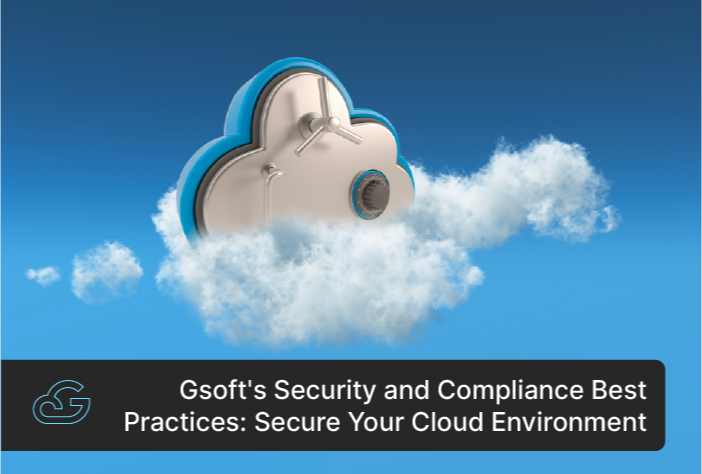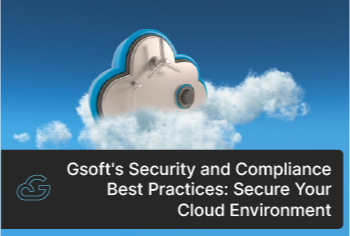Case Studies / Security & Compliance
Gsoft's Security and Compliance Best Practices: Secure Your Cloud Environment
Posted: July 28, 2023
• 4 Min Read
Gsoft's Security and Compliance best practices prioritize cloud security and compliance to safeguard sensitive information and earn customer trust. By adopting these practices, businesses can significantly enhance their cloud security and compliance stance, build customer confidence, and protect themselves against security breaches and data compromises.
Introduction
Gsoft emphasizes the significance of cloud security and compliance in safeguarding sensitive data and maintaining customer confidence. Our best practices encompass a comprehensive security framework, regular security assessments, encryption, the principle of least privilege, access, and identity management, monitoring for anomalies, and ensuring compliance with relevant regulations.
Gsoft Security and Compliance Best Practices
- Implement a comprehensive security framework: We employ a multifaceted security framework to protect cloud environments. This includes network security to thwart unauthorized access and denial-of-service attacks, access control to safeguard sensitive data, data encryption for confidentiality and integrity, and an incident response plan for prompt detection and containment of security incidents.
- Conduct regular security assessments: We perform vulnerability scans, penetration testing, and security audits to identify and address potential security weaknesses and vulnerabilities in your cloud infrastructure. Automated vulnerability scans help detect security flaws, while penetration testing simulates attacks to assess system vulnerabilities. Security audits ensure adherence to industry standards and best practices.
- Use encryption: To secure sensitive data, we provide strong encryption algorithms and follow key management best practices. We recommend the Advanced Encryption Standard (AES) for enhanced security. During data transit, we utilize secure communication protocols like TLS or SSL, and data at rest is encrypted with careful key management practices.
- Follow the principle of least privilege: We help organizations adopt the principle of least privilege to minimize data breach risks. By restricting access to sensitive information based on users' and applications' specific needs, we prevent accidental or intentional misuse of data and reduce the attack surface area.
- Manage access and identity: Effective access and identity management policies are crucial for preventing unauthorized access and data breaches. We recommend multi-factor authentication (MFA) and single sign-on (SSO) to enhance cloud security. Regularly reviewing and auditing user access rights ensures appropriateness and necessity.
- Monitor and detect anomalies: Proactive monitoring using Intrusion Detection and Prevention Systems (IDS/IPS) and Security Information and Event Management (SIEM) systems is crucial for identifying suspicious activity and responding to security incidents promptly.
- Ensure compliance: Compliance with cloud security standards and regulations, such as GDPR, HIPAA, or PCI-DSS, is essential to avoid legal and financial consequences. Gsoft assists clients in adhering to standards, implementing appropriate security controls, and establishing clear data handling policies and procedures. We offer compliance assessments to ensure conformity with the latest regulations.
Bottom Line
By adhering to these best practices, Gsoft helps enhance cloud security and compliance, instills customer confidence, and protects businesses from potential security breaches and data breaches.
Take the Next Step: Reach Out to Our Trusted Security and Compliance Experts!


Get Know More About Our Services and Products
Reach to us if you have any queries on any of our products or Services.











